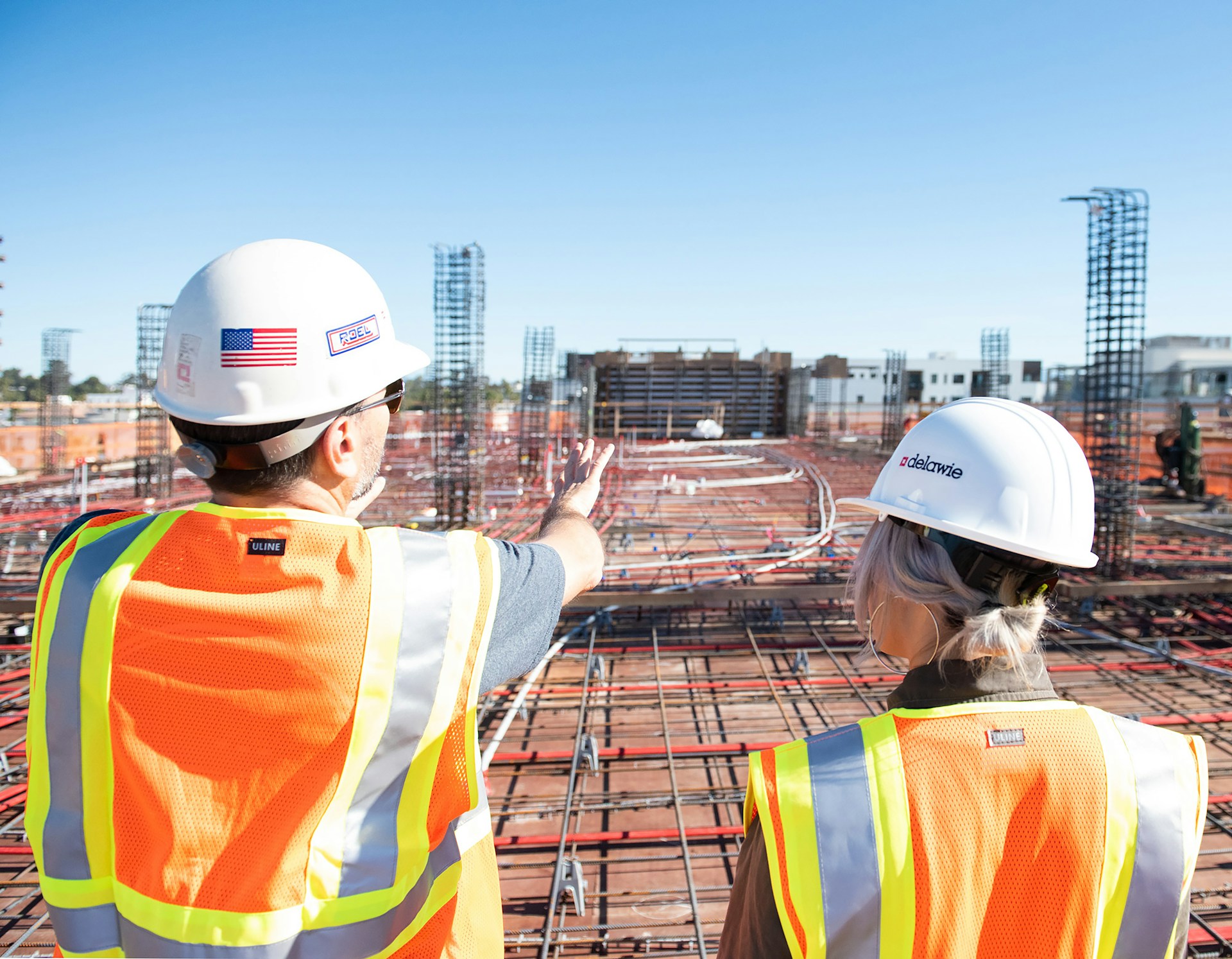During the recent recessionary COVID times, construction companies are racing to restructure & survive. So what does this actually mean, will the streamlining work – and what are the economic consequences?
The world is changing faster than ever before and the construction & Infra sector has to keep pace with the rising demand for modern housing including commercial & industrial infrastructure projects. As hard as it may seem, the industry has come of age to realize that firms that are not catching up with new technologies and solutions- are no longer going to be competitive. So construction firms that do not advocate a strategic adoption and implementation of tech solutions are going to be struggling. According to research from McKinsey & Company, construction productivity has not changed much in the last few years. The traditional method of managing construction projects is based on outdated practices and as such stay isolated from the process and product innovation trends
In the face of such challenges, it is about time the industry gets a makeover. Such a transformation will close global infrastructure gaps and boost Socio-economic development in general.
Nevertheless more and more construction companies are forming strategic partnerships with construction management software providers. This allows seamless integration of project actualities, resulting in industry solutions, thereby making it easier than ever to transform construction projects into profitable ventures. So let’s first understand what ails the construction industry & how emerging tech trends are helping shape the industry.
Unique Challenges Of Construction Project Management
Among the many fields involving project management, the field of construction project management has more heterogeneous complexities than others, making things less predictable. Also, no two blueprints are exactly the same, and project teams are always on rotation, causing a lot of incoherency.
Plus getting other stakeholders, which includes project managers, architects, contractors, engineers, etc on the same page, in order to make decisions becomes a difficult routine.
Construction Project Scope
What makes it more complex is the changing nature of project scope that overrides the one that was planned originally resulting in planned budgets getting deoptimized. This makes the decision-making process, right at the site level quite challenging.
Hence, changing project variables must factor in the conditions as to how suitable it is to implement new requirements. Moreover, managing key teams working on a construction project(s) & making them accountable is another challenge.
Risk Management
Any amount of risk mitigation plans, without a proper contingency plan, will prove to be detrimental to the project causing delays and hinder the quality & safety aspects of the project
Also, the need to accommodate conflicting drivers, one being changing project variables vis-à-vis future developments & the other being cost rationalization, leads to uncertainties in the construction sector. Therefore looking at the above challenges faced by the construction industry, it is interesting and important to know how recent tech trends, are having a positive impact on the construction industry. Moreover, it is now well acknowledged that by adopting the right tech-solutions at the right time, and in the right way can bolster a range of efforts & processes that enable construction projects to run smoothly.
Tech Trends Shaping Construction Management Space
Unified Omni-Resource Platform
Legacy I.T systems which were once used, were largely decentralized systems and could not be used in a wider context and so missed on giving a broader perspective to stakeholders. But with construction management platform taking the lead, everything from simulating projections or budgeting, to vendor and subcontractor coordination, material management, and revenue analysis, all happens as a unified back end process, rendering disparate data as “centralized information” to be easily used by project managers.
All under One Roof Solution
Zepth connects all project tasks to all site functions making it the “single source of truth” across people & processes. And with multiple subcontractors participating, it streamlines the committed cost and contractor’s accounts payable transactions, by uploading contracts by defining payment terms and schedules.
It outlines the real-world value of embracing appropriate functions, across the construction workflow that enumerates various steps in the pre and post-construction phase. Construction management platform expedites modalities, to help stakeholders to be fully prepared even before winning the contract, by widening the scope for bidding and evaluating projects. Not only does it do away with repetitive data entry jobs, but it also doesn’t allow human errors to creep into the process. This allows for better contract management, by managing multiple change orders, tracking anticipated variation, without missing out on details or quality, which makes things very conducive for better revenue projections.
The financial backbone of any construction firm depends on a comprehensive budgeting solution and that’s exactly what Zepth offers to accomplish. Construction management software simplifies the complete construction workflow and maintains a balance between costs, schedules, goals & targets by leveraging real-time data & team management.
Cloud-Based Integration
Zepth’s ‘customizable automation’ at every applicable touchpoint can quickly and accurately perform budget revisions across project phases. It facilitates remote access to track and review cash position for projects & ascertain any shortage or excess of funds to address problems before they become issues.
The processing of the above such functions occurs over a cloud-based network so that users can access information remotely. Thus frequently updated cloud-based reporting enables teams to take timely decisions, which in turn act as live updates for other system modules to be used by cross-functional teams.
AI Empowered Analytics
By managing inspections using automated checklists, Zepth’s global library of templates, facilitates managers to refer to the recently updated paperless reports.
Moreover, the platform has provisions to record preventive measures, with task-based corrective actions that help monitor quality compliance, which can be rapidly integrated into dashboards to view ‘Project aging’ analysis which essentially deals with the time taken to identify, act upon & resolve the detected issues. It also enables intelligent reporting by processing information and making it available on mobile devices or tabs.
According to industry experts, 50% of current processes in the construction sector could eventually be based on smart (AI) technologies. Speaking of smart systems, Zepth already has an AI-driven Virtual Assistant-that helps users to understand the tool & its aspects. The above overview of the construction management platform highlights, the different ways AI-driven construction management software helps solve the impediments affecting the construction industry.
Thus the platform not only enables effective business continuity planning, quality compliance, team management & financial risk mitigation, but when deployed strategically, it can help construction teams resolve many challenges across the entire chain of command.
Endnote
In conclusion, it can be said that construction management software has become an “INDUSTRY MUST HAVE”. Typically, construction management ERP focuses on complying with industry & government regulations, in order to gain transparency, giving construction projects a competitive advantage.
Lastly, all one can say is that there is much room for customization, as ‘one-size-fits-all’ is not always true and the platform is flexible enough, to be tailored to match specific & nonstandard requirements. Therefore in order to be relevant to the ever-changing business landscape, firms must continue to adapt & make good of the changes affecting construction management space.




